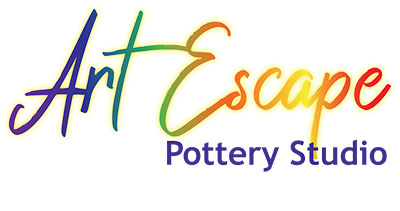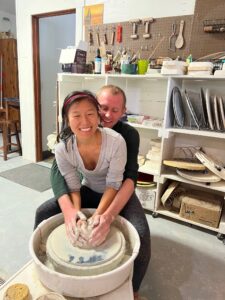In today’s fast-paced world, many individuals seek refuge from life’s pressures through various means, including drugs or alcohol. However, there is a healthier and more fulfilling alternative: pottery. Engaging in pottery offers a therapeutic escape that not only provides relaxation and stress relief but also promotes physical, mental, and emotional well-being. Here’s why making pottery is a healthier escape than turning to drugs or alcohol:
1. Stress Reduction: Pottery making is inherently meditative and calming, allowing individuals to escape from the stresses of daily life. Working with clay engages the mind and body in a focused and absorbing activity, promoting relaxation and reducing stress levels. Unlike the temporary relief offered by drugs or alcohol, pottery provides a sustainable and long-lasting sense of tranquility and inner peace.
2. Creative Expression: Pottery offers a creative outlet for self-expression and exploration. Through clay, individuals can channel their emotions, thoughts, and experiences into tangible works of art. The act of creating something with one’s own hands fosters a sense of accomplishment and fulfillment, boosting self-esteem and confidence. Rather than numbing emotions with substances, pottery encourages individuals to confront and express their feelings in a healthy and constructive manner.
3. Mindfulness Practice: Pottery making promotes mindfulness, the practice of being fully present and engaged in the moment. When working with clay, individuals must focus their attention on the task at hand, allowing them to let go of worries about the past or future. Mindful pottery practice encourages individuals to observe their thoughts and sensations without judgment, fostering a deeper connection to the present moment and enhancing overall well-being.
4. Physical Benefits: Engaging in pottery offers physical benefits for the body, including improved hand-eye coordination, dexterity, and motor skills. The tactile nature of working with clay strengthens muscles and joints, promoting flexibility and range of motion. Unlike the harmful effects of drugs or alcohol on the body, pottery making supports overall physical health and vitality, contributing to a more active and balanced lifestyle.
5. Community Support: Participating in pottery classes or workshops provides individuals with a supportive community of fellow artists and enthusiasts. Connecting with others who share a passion for pottery fosters a sense of belonging and camaraderie, reducing feelings of isolation and loneliness. The encouragement and camaraderie of the pottery community serve as a powerful antidote to the social isolation often associated with substance abuse.
In conclusion, making pottery offers a healthier and more fulfilling escape from life’s pressures than turning to drugs or alcohol. Through stress reduction, creative expression, mindfulness practice, physical benefits, and community support, pottery promotes holistic well-being and resilience. By embracing pottery as a therapeutic outlet, individuals can find solace, satisfaction, and fulfillment without the harmful consequences of substance abuse

